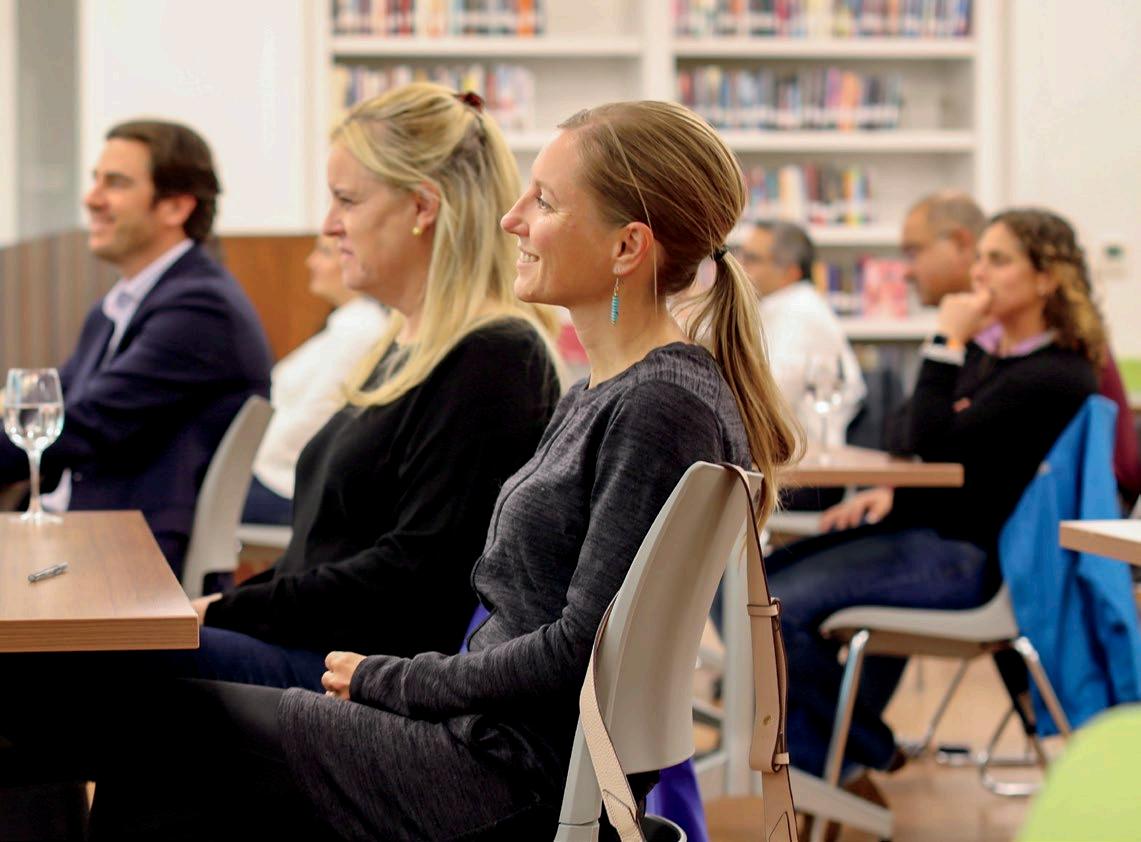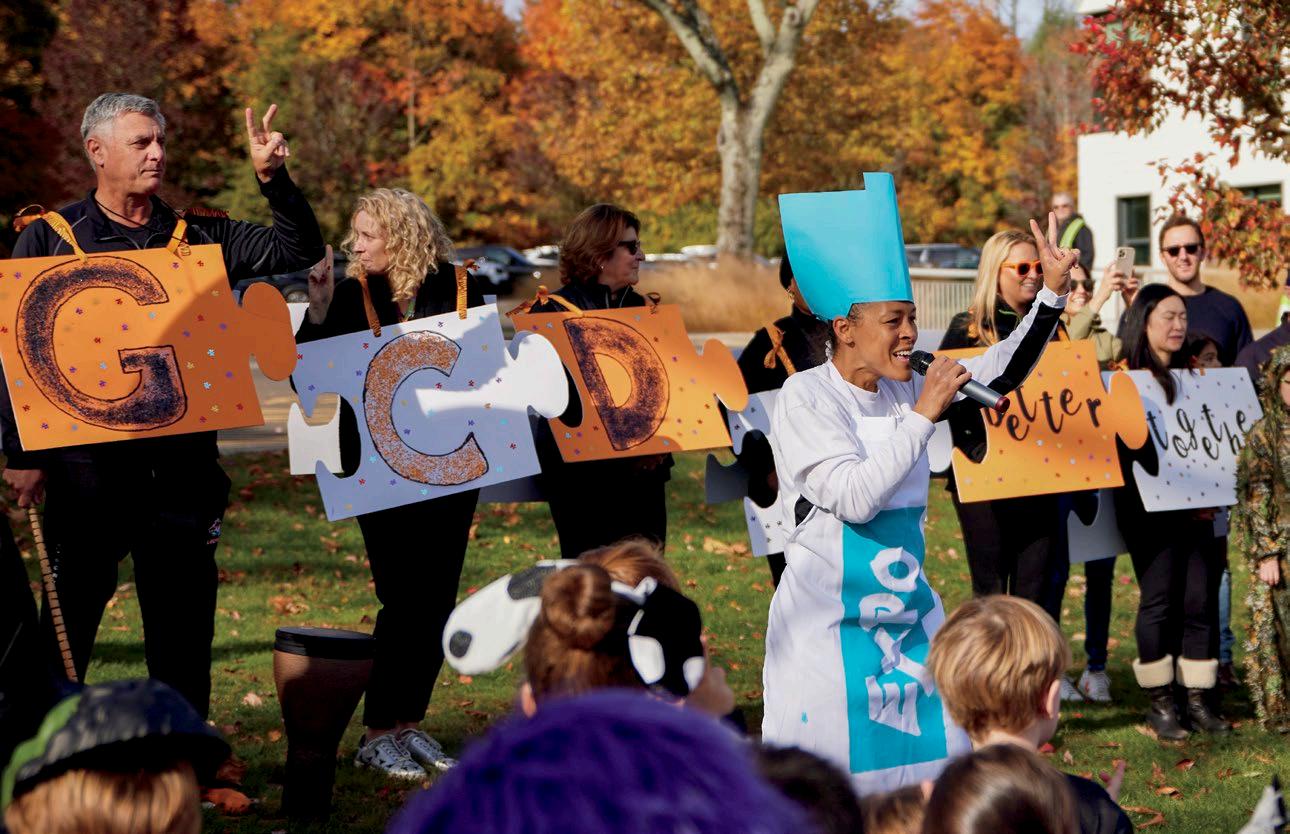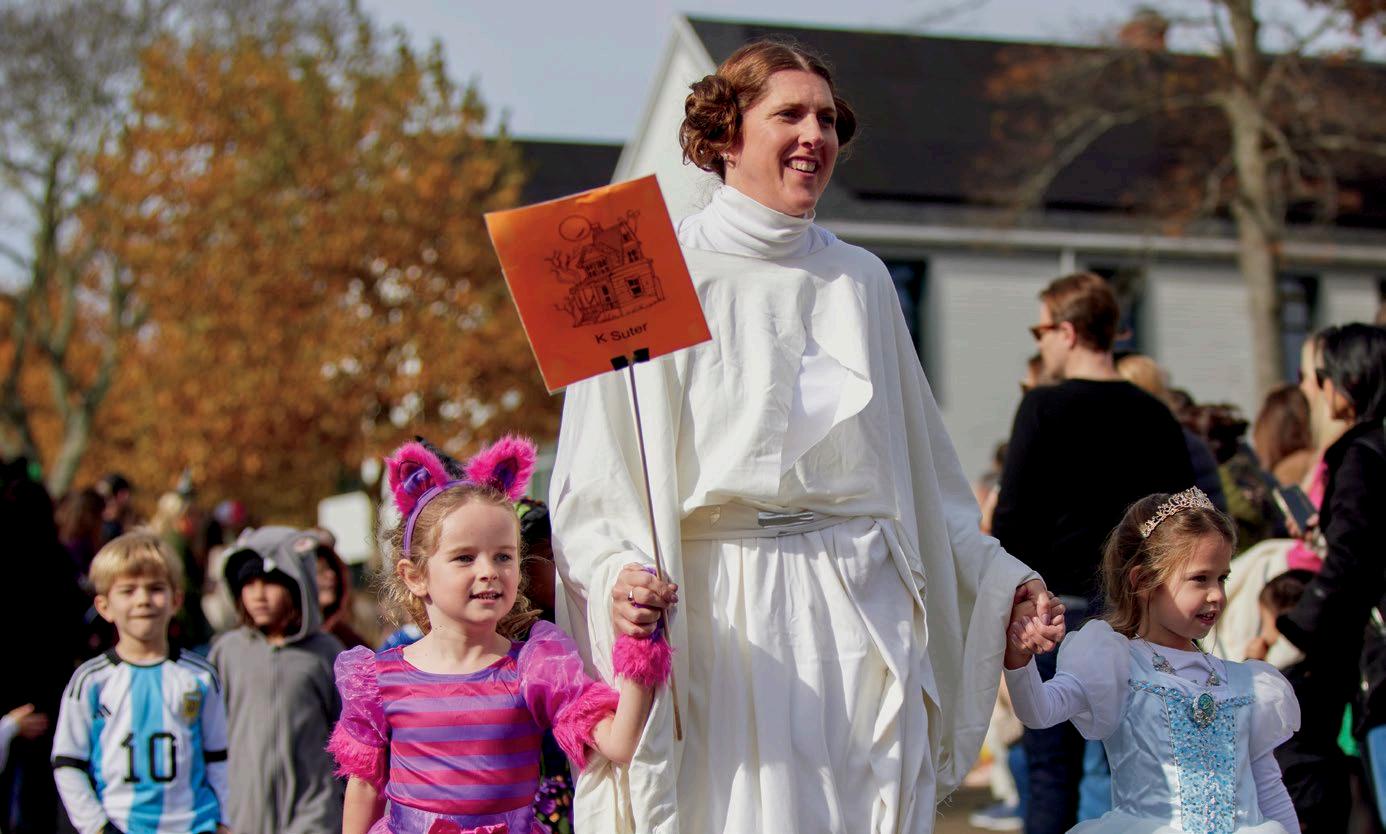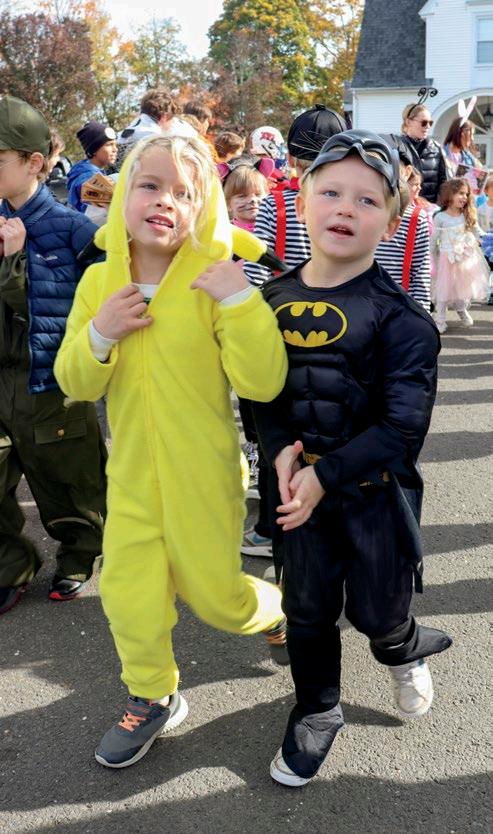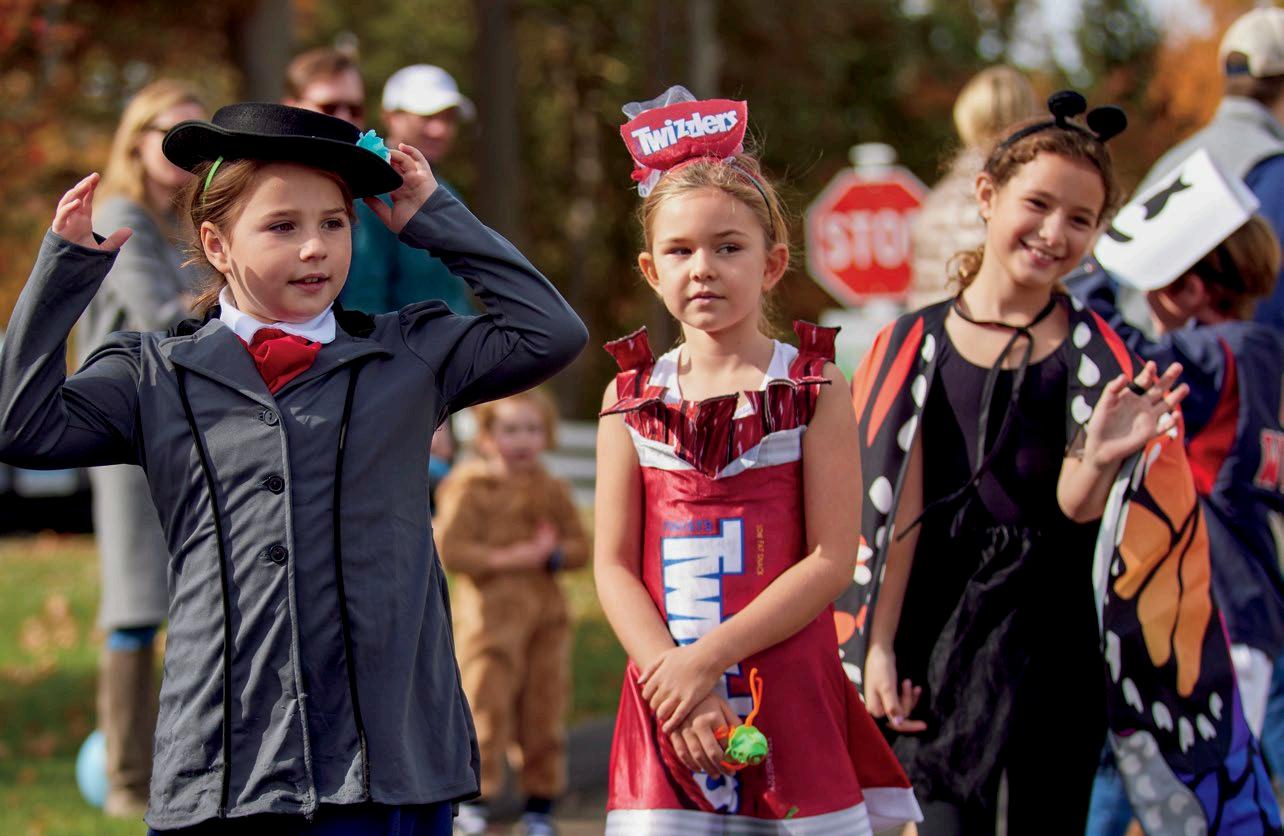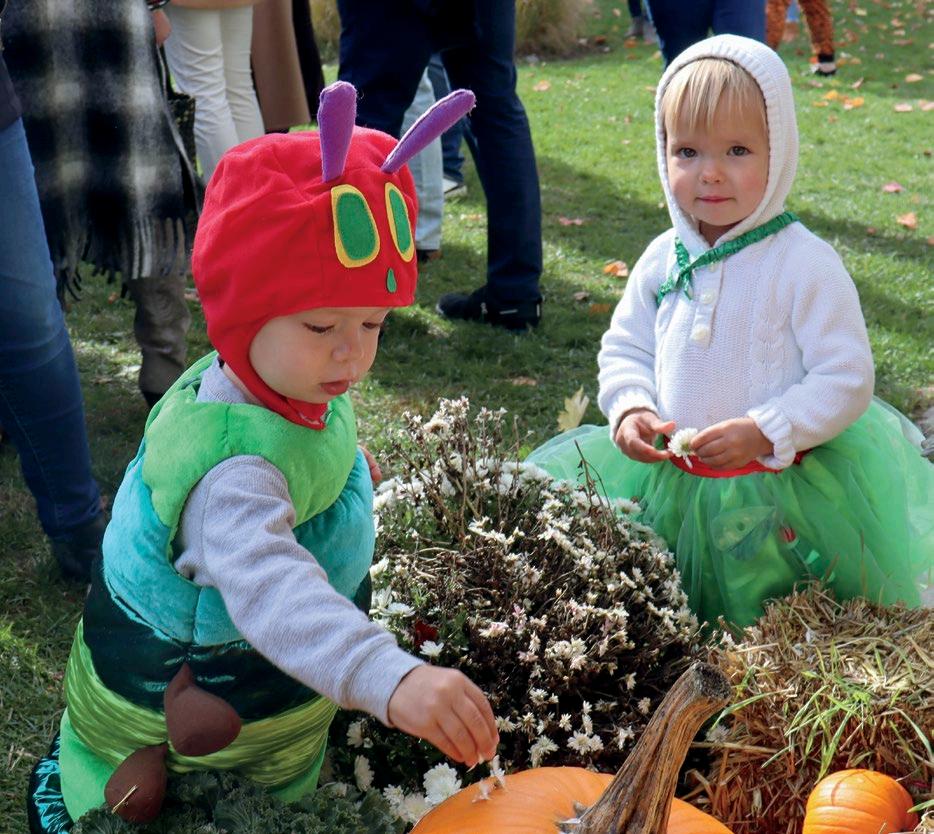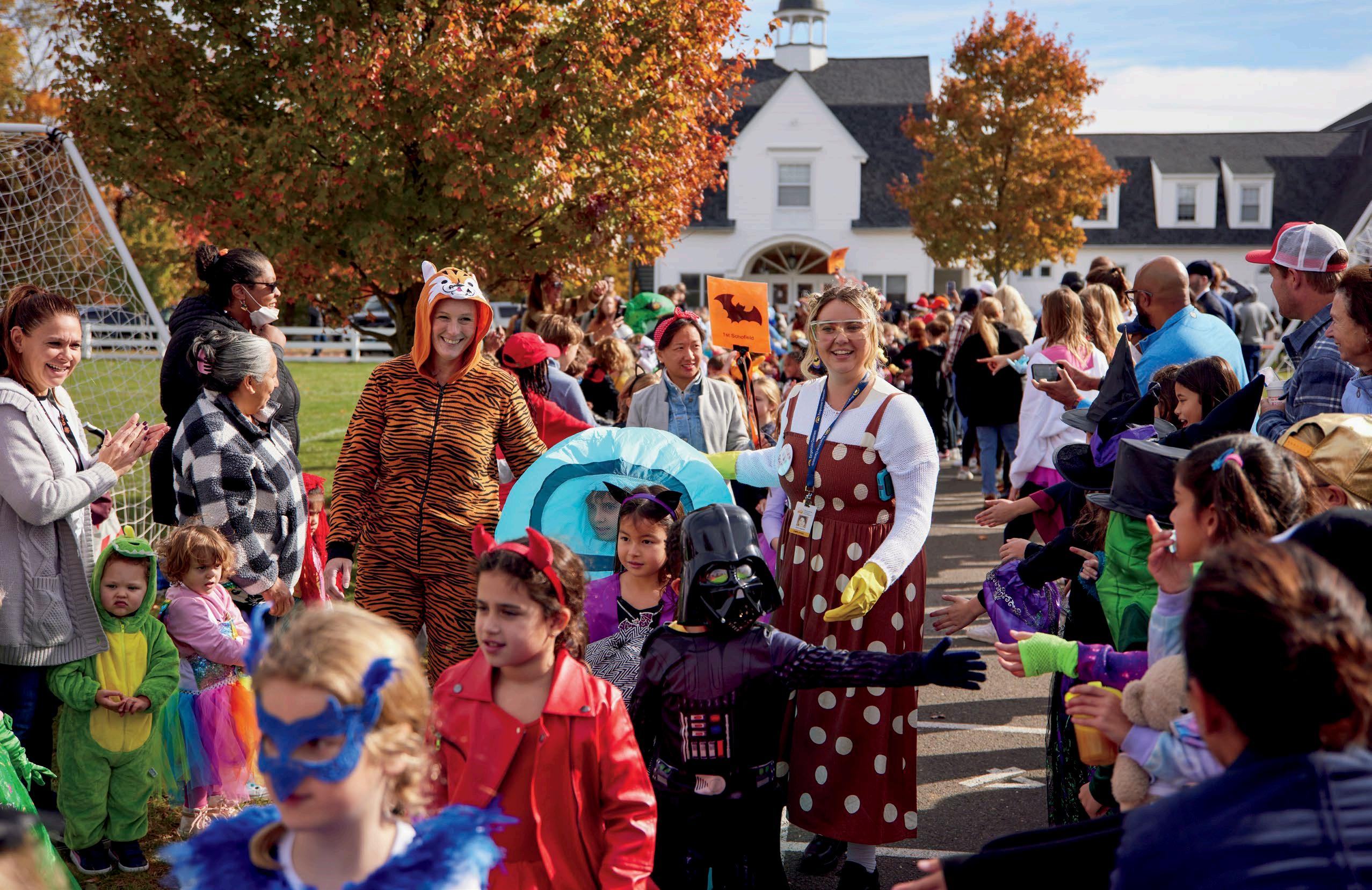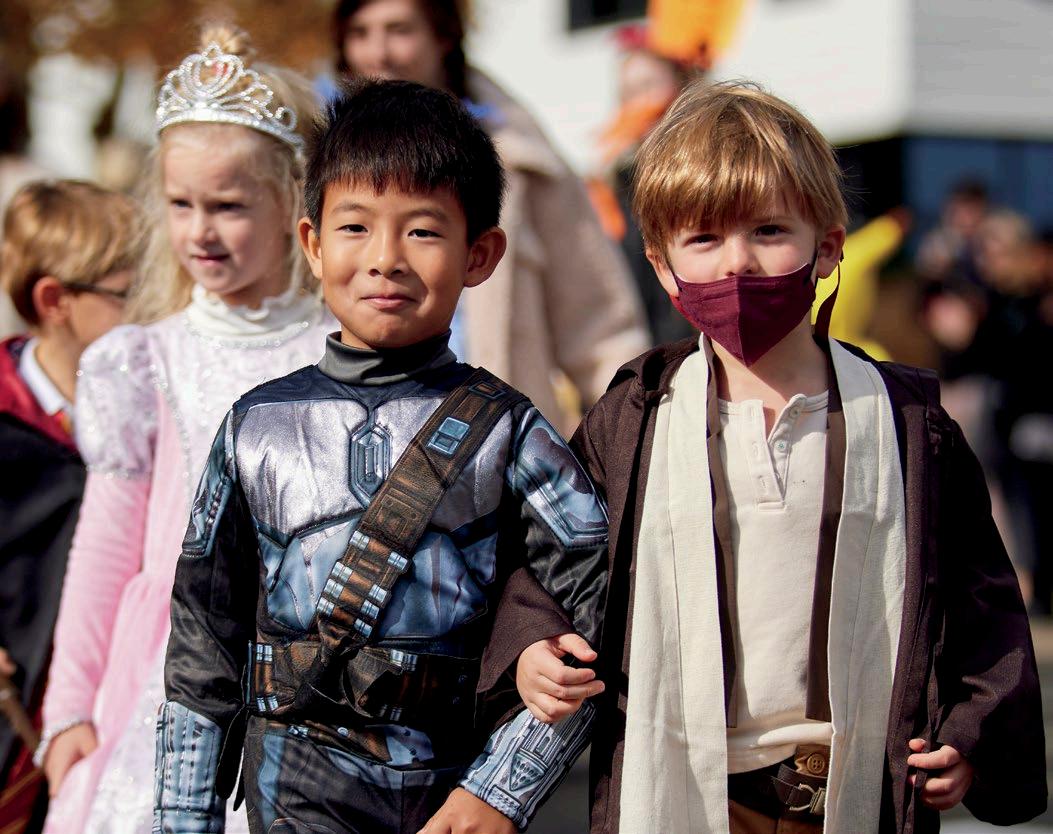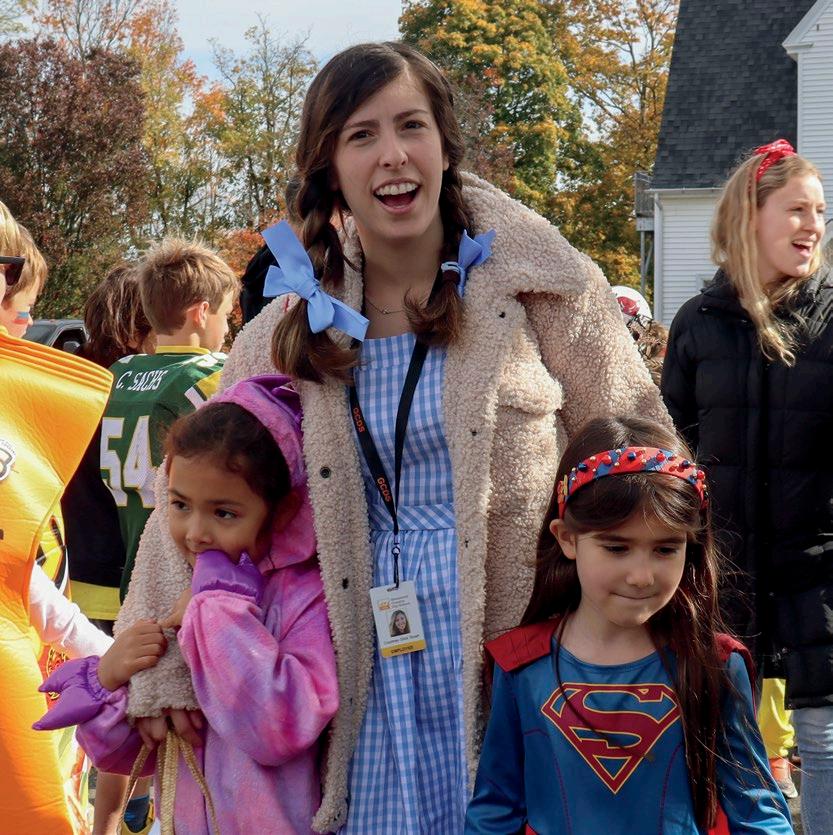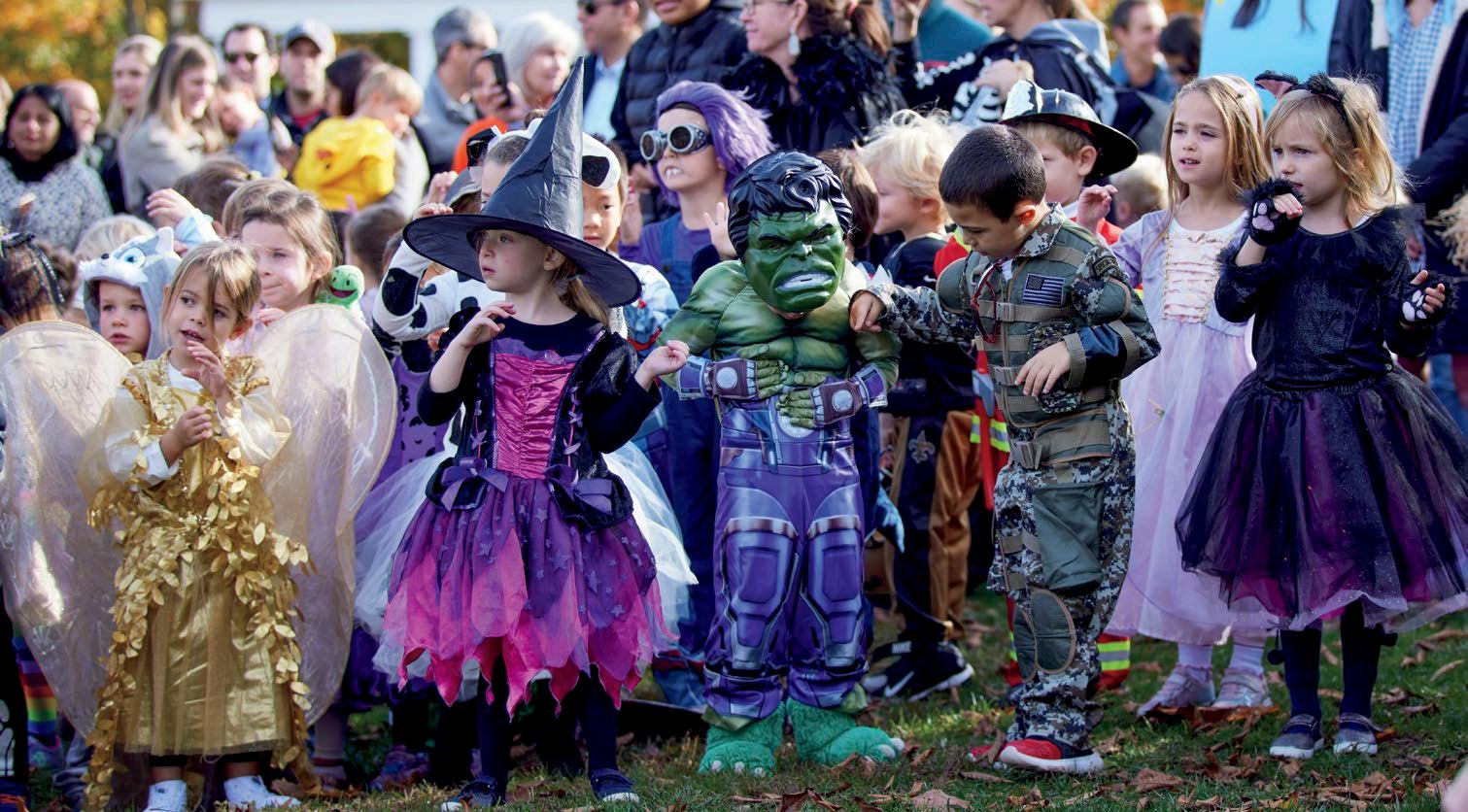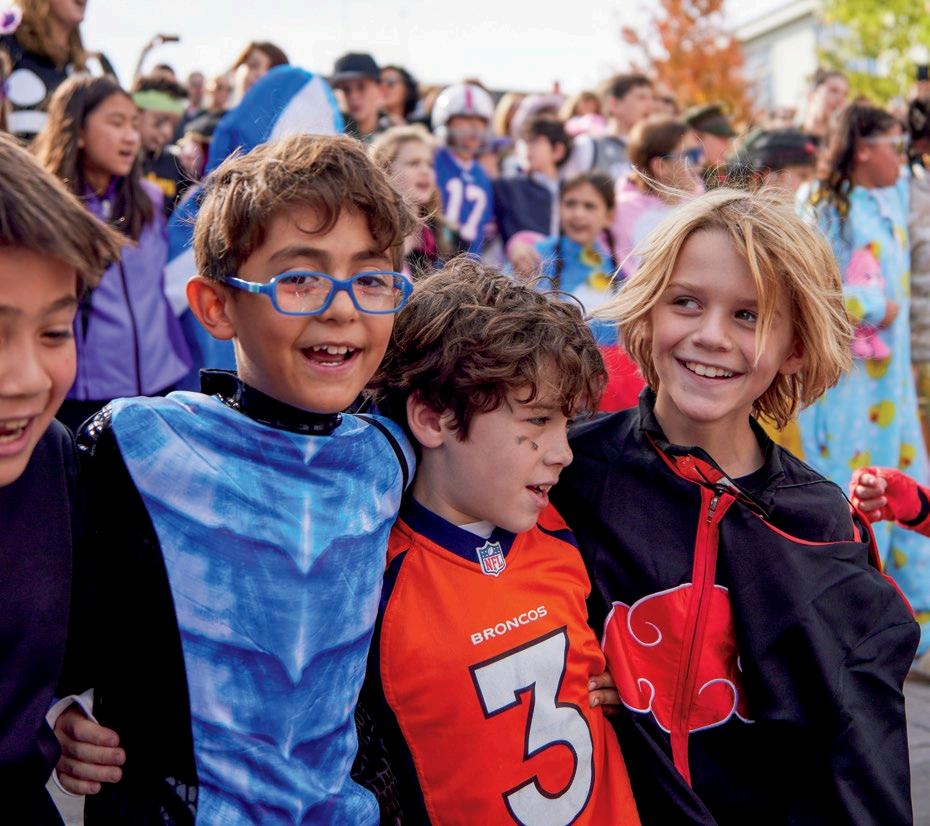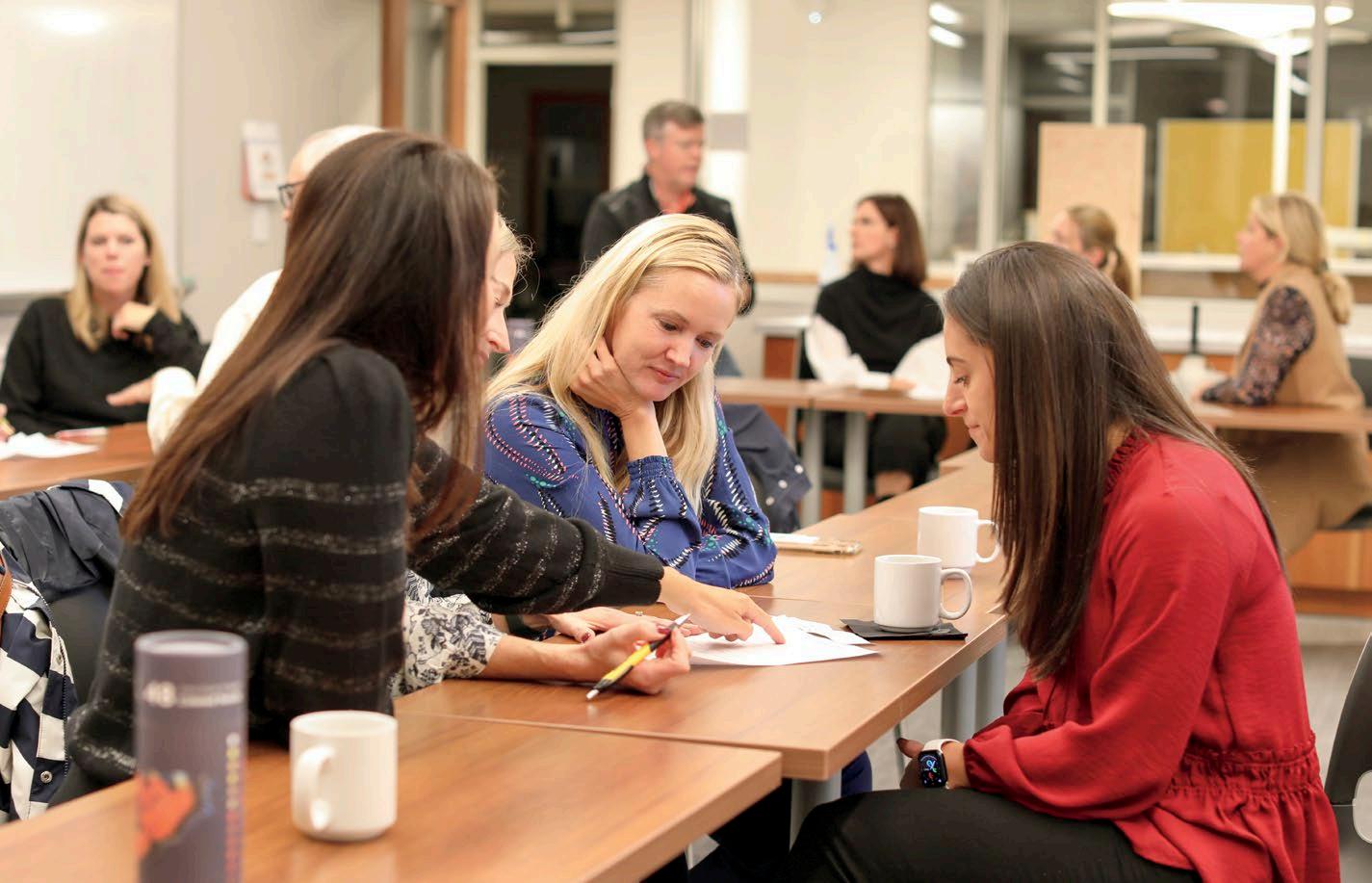
2 minute read
Student for a Night Gets High Grades from
Parents
By Jim Cullen, Upper School History Teacher
Student for a Night is a new series where GCDS parents take classes taught by the school’s faculty. The series kicked off on Oct. 13 with a set of three sessions offered by teachers with deep roots in the community.
Dean of Faculty Lauren Waller, who taught English at the Middle School for over a decade before taking her current post at the Upper School, offered parents a foray into the literature of immortal- ity. Parents worked their way through a Shakespeare sonnet, as well as poems by Percy Bysshe Shelley, Emily Dickinson, and Claude McKay, sometimes in pairs and other times in spirited group conversation.
“I thought that was amazing,” Jennifer Sokol, mother of a tenth grader—and an English major in college—said after the session. Waller found the experience similarly bracing. “There is something wholly special about welcoming parents and guardians back to the schoolhouse to search for meaning in the same words and stories as their children,” she said. “Discussing literature together feels like the definition of community building. I am thrilled to be part of it.”
Social Science teacher and internship program director Joe Perry, who taught at GCDS before serving as Head of School at Derby Academy in Hingham, MA, and returning to the Upper School, offered parents a slice of the archeology class he is currently teaching as an elective. In the class, students literally dig in around the GCDS campus, uncovering gems like Schlitz bottle caps from the 1970s and fragments from an old stove from the 1920s, which one student correctly determined came from a house that burned down. In a simulation of the student-based learning prevalent at the school, parents in Perry’s session worked in groups to choose objects on the basis of their social significance while others decoded them. The exercise became a vehicle for considering assumptions, inferences, and deductions.
Caroline Ziebarth, mother of fourth and sixth graders, was impressed by the “independence and ownership” such experiences foster. For Perry, this sense of self-directed exploration is the key to the archeology class, whose fundamentally interdisciplinary character straddles science and the humanities. “To me, it is the renaissance subject where students of any age can learn about almost any interest and truly see how the world is interconnected and not categorized into academic silos,” he said.
Coleman Hall is a relative newcomer in his second year at the school, but has emerged as a popular figure as well as the leader of the GCDS math department team. He led a session on the metrics of democracy in a midterm election year, walking parents through ranked choice voting, varieties of gerrymandering, and other topics. For Hall, the session offered a way to “look at some key ideas of voting theory and how mathematics can be used as a way to discuss politics and civic engagement in an inclusive way that supports all beliefs and ideologies.”

One dad described the session as “fascinating,” noting that he had grown up in India and never had a class like this. “That was such a fun evening,” Yvonne Burke, the mother of fourth and eighth graders, noted the next day. (It was notable how many of the attendees came from across the divisions of the school.) Burke relished “mingling with new friends in such a relaxed setting, seeing the new high school in all its glory.”
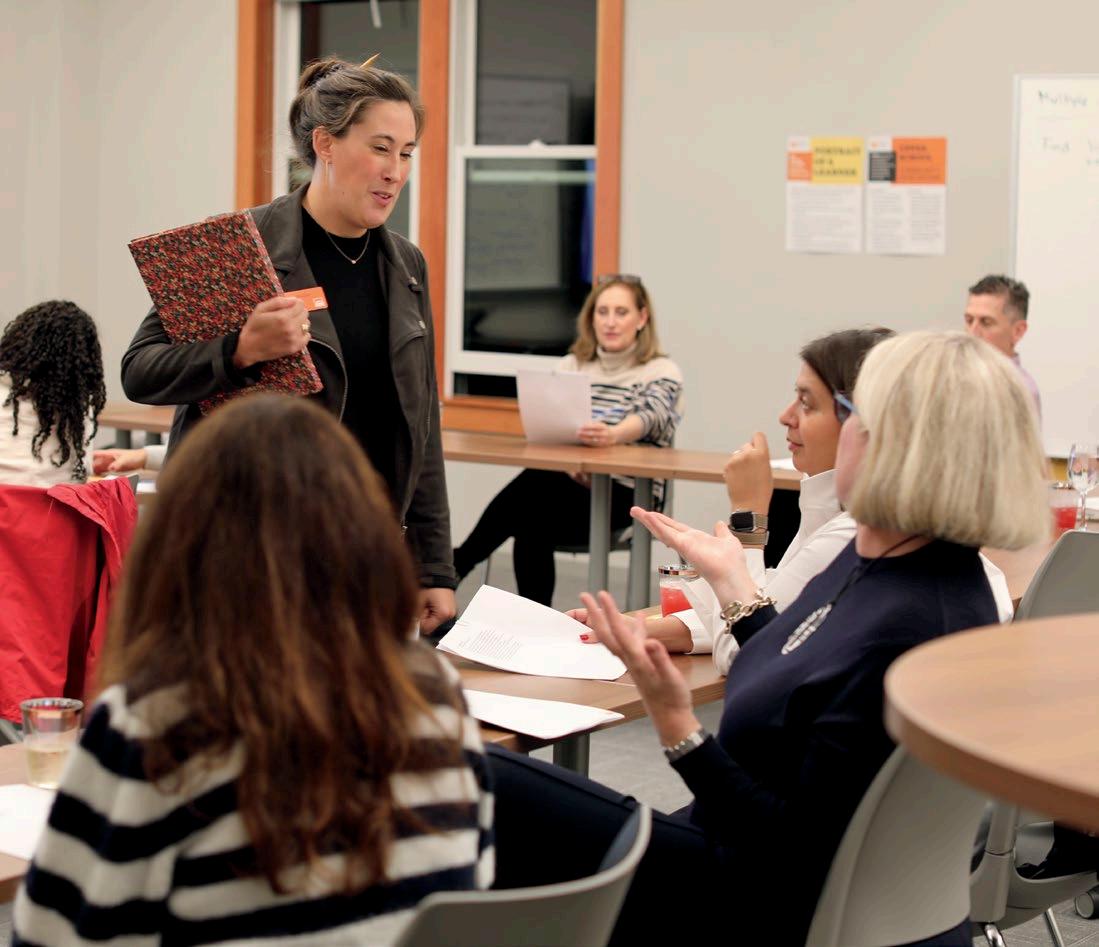
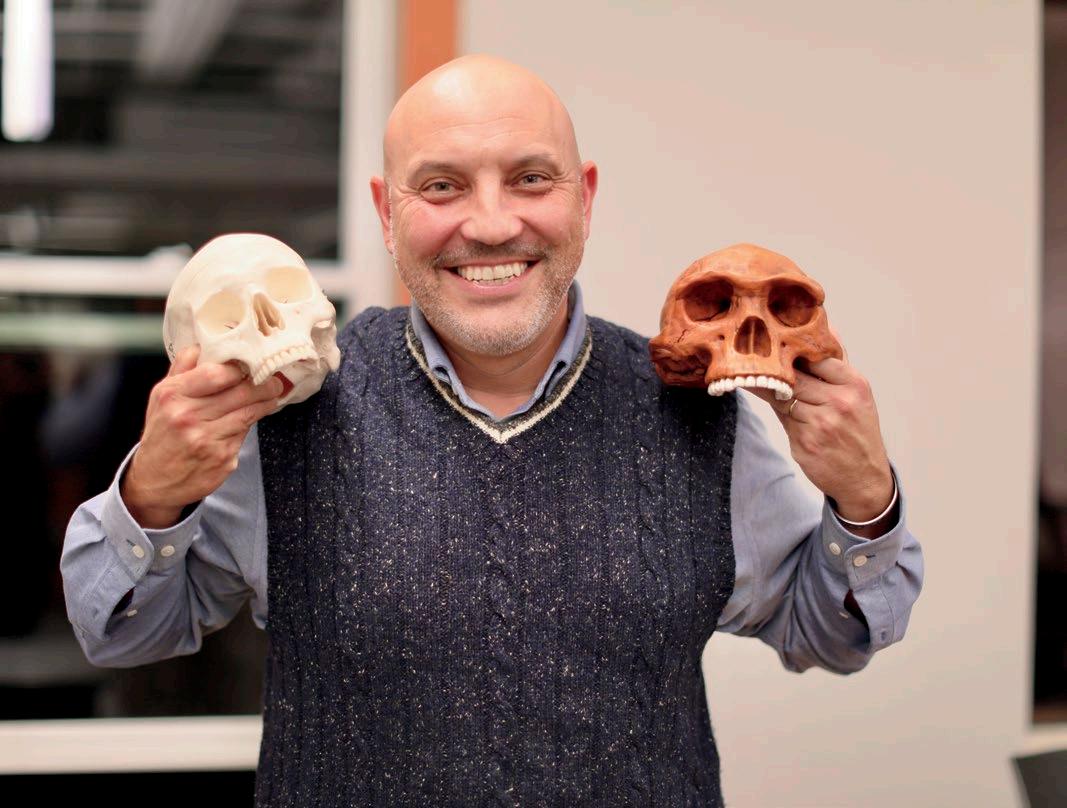
For others, the pleasure of the evening also rested on its larger implications for their children. “This is so reassuring,”
Kelly Thompson, the mother of eighth and ninth graders, said at the end of the evening. “This is why we send our kids here. I know they’re with the best of the best.”
The next session of Student for a Night is slated for some time early next year.
